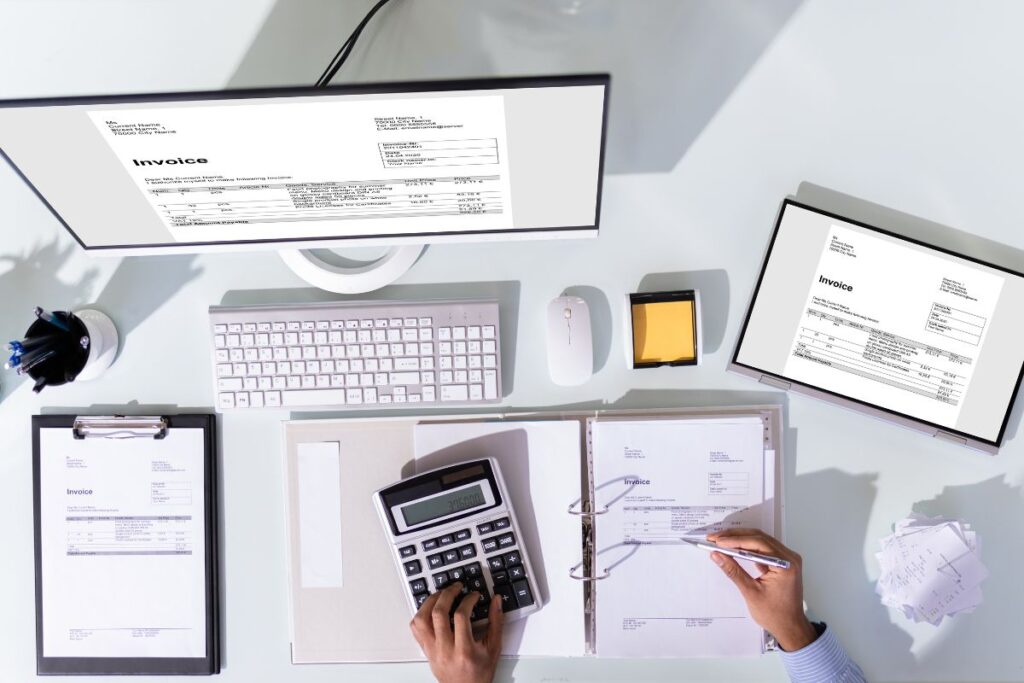If you’re trying to wrap your head around the bookkeeper vs accountant debate, you’re not alone. At first glance, it can seem like they do the same job with your financial data.
Both deal with numbers, financial records, and keeping your business in check. But truth is, there are a few key differences between bookkeepers and accountants, and knowing who does what can save you time, money, and stress.
Whether you’re a sole trader, small business owner, or growing team, understanding the difference between bookkeeper and accountant roles is a solid first step to getting your financial ducks in a row whilst getting the best possible strategic financial advice.
What is Bookkeeping in Accounting?
Bookkeeping is the process of recording and organising financial transactions on a daily or weekly basis. It’s all about making sure your business records are up-to-date and accurate. Think of it as the groundwork for everything else that happens in accounting.
A bookkeeper manages:
- Invoices and receipts
- Payroll and super
- Bank reconciliations
- BAS lodgements
- Tracking financial data
- Preparing financial statements for your accountant to review
Bookkeeping and accounting go hand in hand. Without good bookkeeping, an accountant doesn’t have much to work with.
What Does an Accountant Do?
While your bookkeeper keeps things running smoothly day-to-day, your accountant steps in for the bigger picture stuff. Their job is to interpret financial information, provide advice, and handle more complex tax and compliance matters.
An accountant typically handles:
- End-of-year financial reporting
- Tax returns and planning
- Business structure advice
- Financial forecasting
- High-level analysis of your financial health
You’ll usually touch base with an accountant less often, but when you do, it’s for the important stuff. The kind that keeps the ATO happy and helps you make informed decisions.
The Key Differences Between a Bookkeeper and an Accountant
Still wondering about the difference between bookkeeper and accountant roles? Here’s a simple breakdown:
| Bookkeeper | Accountant |
|---|---|
| Manages day-to-day financial transactions | Focuses on strategic planning and tax |
| Keeps your financial records organised | Prepares and reviews financial statements |
| Handles BAS, payroll, and data entry | Provides financial and business advice |
| Often works weekly or monthly | Usually involved quarterly or annually |
One’s not better than the other, they just play different roles in your business. Some businesses use both. Others start with a bookkeeper and bring in an accountant as they grow.
When Do You Need Both?
If you’re asking, do I need an accountant or a bookkeeper, the answer might be both. Here’s a quick guide:
- Starting out? A bookkeeper will help you get set up with the right systems and keep your books clean.
- Lodging BAS or doing payroll? That’s your bookkeeper’s wheelhouse.
- Tax time or business planning? Call the accountant.
- Want to sleep better at night? Have both in your corner.
- And if you don’t know where to start? Chat to a bookkeeper. We’re usually your first point of contact and can guide you from there.
Questions Meet Answers
Can a bookkeeper be called an accountant?
Not quite. A bookkeeper and an accountant have different qualifications and responsibilities. Bookkeepers focus on keeping the books accurate, while accountants are usually degree-qualified and take care of tax, compliance, and strategy. That said, a qualified bookkeeper with BAS agent registration (like us) can handle a lot, just not your tax return.
What does a bookkeeper do in accounting?
Bookkeepers are responsible for entering and managing financial data so that your accounts are accurate and up to date. This includes reconciling bank accounts, processing payroll, managing accounts payable and receivable, and preparing financial records.
All of this feeds into the accountant’s work when it’s time for reporting or tax.
Should I use a bookkeeper or accountant?
That depends on your needs. If you’re after day-to-day support and someone to handle your BAS, payroll, and bookkeeping software, go with a bookkeeper. If you’re after business advice, tax planning, or help with compliance, then you’ll need an accountant too.
What does an accountant do that a bookkeeper can’t?
Accountants can provide strategic advice, prepare tax returns, and help with structuring your business. They’re also trained to offer insights into your financial statements and long-term planning.
Bookkeepers can give you accurate numbers, accountants help you decide what to do with them.
Do I need an accountant or a bookkeeper?
If you’re running a small business, a bookkeeper is your go-to for staying organised and meeting BAS requirements. But when tax season rolls around or you want to plan for growth, it’s smart to have an accountant on board too.
Most established businesses benefit from having both.
Chat To A Bookkeeper and Let Us Guide You
Need help figuring out which one you need? Or want both in your corner?
Get in touch with the team at Advanced Bookkeeping and BAS. We’re all about making your business finances easier to manage.
No jargon. No judgment.


